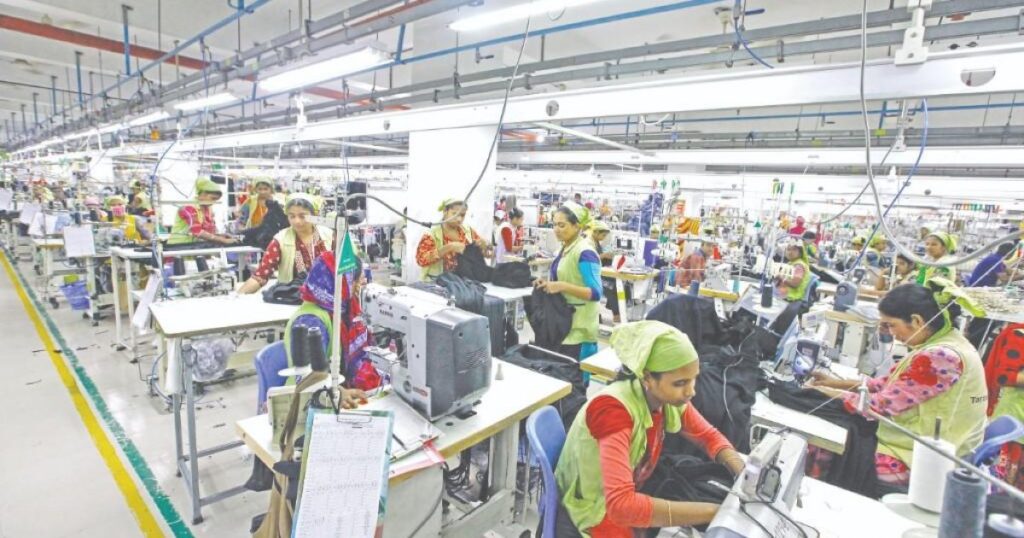After several decades of sustained progress, Bangladesh is looking to step up its economic model to ensure sustainable and smooth graduation from the least developed country (LDC) status – with support from UNCTAD and its global partners.
The joint report entitled “Production Transformation Policy Review (PTPR) of Bangladesh”, launched on 12 September, explores ways to support the nation’s aspiration to exit the LDC category in 2026 and become a high-income nation through industrialisation by 2041.
It also highlights the country’s assets, including its strategic geo-location and the government’s commitment to diversifying the economy.
The report launched in the country’s capital Dhaka comes after a 20-month consultative process between the Bangladeshi government and the Organisation for Economic Co-operation and Development through the PTPR tool, which advises governments on strengthening their economies in response to major global trends.
UNCTAD and the European Union also supported in-depth policy review and consensus building for the PRPR of Bangladesh.
“Bangladesh has a vision of what it aspires to be – an economically developed, socially inclusive and environmentally sustainable high-income economy,” said UNCTAD Deputy Secretary-General Pedro Manuel Moreno in his message for the report launch.
“We stand ready to support the country on this journey and are convinced that Bangladesh has the vision and determination to achieve its goals.”
Five decades of development strides
Bangladesh has achieved impressive progress since its independence in 1971, the report notes.
The country has shifted from an economy marked by extreme poverty and famine to the third global manufacturing powerhouse for ready-made garments – just after Vietnam and India.
Manufacturing plays a central role in Bangladesh’s economy. Between 2000 and 2022, value added from the sector almost doubled as a share of GDP, up from 11% to 22%.
The ready-made garment industry is pivotal for trade, with 20 products accounting for 84% of total domestic exports.
Bangladesh has also nurtured domestic industrial capabilities in emerging, more technologically advanced sectors, including electronics and pharmaceuticals.
Today, it’s the only LDC involved in pharmaceuticals and medicines’ manufacturing. Domestic production meets 98% of the country’s needs.
Urgent need for economic diversification and resilience
To sustain growth, the report underscores that Bangladesh needs to continue diversifying its production structure and exports, tackle its vulnerability to natural disasters and reduce its exposure to fluctuations in global commodity markets.
To keep up momentum for LDC graduation, the country needs an updated domestic policy approach to complying with international rules applied to developing countries.
It can benefit from a revamping of international partnerships to shore up development efforts, including by fostering a more effective business dialogue, as well as bridging gaps in physical and digital infrastructure.
Additionally, it’s important to continue leveraging digital technologies in business, and update the regulatory framework, including the amendments of the 2018 Digital Security Act.
A change in the approach from international partners is also essential.
They need to engage with Bangladesh beyond areas such as responsible business conduct and infrastructure development, to new forms of partnerships that ensure inclusive and sustainable development, as well as support the greening of Bangladesh’s industries and energy mix.
Three priority areas
Based on a comprehensive diagnosis, including in-depth analysis of Bangladesh pharmaceutical and electronics sectors, the review identifies three priorities for reforms:
Firstly, it calls for future-readying the country’s economy. This requires stepping up domestic resource mobilisation, as well as the necessary institutional and administrative capacities.
Secondly, it encourages a gradual shift in the mindset of doing business, from a price-led competitiveness model to an innovation-driven one.
This would entail investing more in innovation and technological upgrading, where foreign direct investment can be a key catalyst.
Last but not the least, the report calls on Bangladesh to modernise its policy approach, moving from focusing on market access and tariff management, to more modern policy tools capable of adequately incentivising innovation and fully harnessing the country’s market potential and strategic geographical location.
Source : UNCTAD


